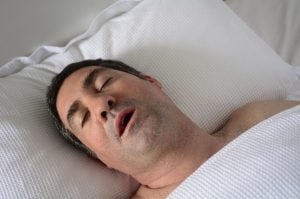How Can I Determine Risk Level For Sleep Apnea?

It can also be a sign of obstructive sleep apnea, a serious medical condition. This is a potentially life-threatening sleep disorder that’s characterized by repeated pauses in breathing during sleep. This can occur hundreds of times a night, causing less oxygen to reach your brain and the rest of your body.
If left untreated, it can increase your risk for other serious health conditions, including heart attack, stroke, diabetes, and high blood pressure.
In this blog, the sleep apnea specialist at eos dental sleep will explain how you can determine your risk level for sleep apnea.
What causes sleep apnea?
Most people with sleep apnea don’t even realize they have this serious condition. An estimated 90% of people who have sleep apnea will not be diagnosed and will be at risk for troubling symptoms and conditions that can harm their overall health. Left untreated, sleep apnea can even be life threatening.
Obstructive sleep apnea occurs when the airway is obstructed and air is unable to flow easily through the nose or mouth during sleep.
This obstruction causes turbulent airflow, which produces vibrations of soft tissue. When you snore, the sound you hear is a result of these vibrations.
Your brain can sense this inability to breathe and try to awaken you. Usually this happens very briefly, and you probably don’t even realize it. You may make a snorting or gasping sound repeatedly throughout the night as you try to get the air you need.
Ongoing sleep apnea causes too much carbon dioxide to remain in your body and not enough oxygen to enter, resulting in an imbalance.
What are the symptoms of sleep apnea?
A number of symptoms can point to a sleep apnea condition. They include the following:
- Excessive daytime sleepiness, even when you seem to get enough hours of sleep
- Trouble concentrating
- Irritability
- Irregular heartbeat
- Sore throat or dry mouth when you wake up
- Restless sleep
- High blood pressure
- Gasping or choking during sleep
- Morning headaches
- Pauses in breathing during sleep
What are the risk factors for sleep apnea?
There are a number of factors that can increase your risk level for sleep apnea, such as:
- Excess weight: Fat deposits around your upper airway can obstruct your breathing. People who are obese have a risk level for sleep apnea four times greater than those who aren't.
- Neck circumference: If you have a thicker neck (17 inches or greater in circumference for men and 15-16 inches or greater for women), you may have a narrower airway.
- Gender: Men are twice as likely to have sleep apnea when compared to women. However, women’s risk may rise after menopause.
- Age: Sleep apnea occurs more often in adults over 60.
- Family history: If you have family members who have sleep apnea, you may have an increased risk of having it also.
- Race: African-Americans are more likely to have sleep apnea at a younger age (under 35).
- Alcohol, sedatives, or tranquilizers: Using these substances relaxes the muscles in your throat.
- Smoking: Smoking can cause inflammation in your upper airways, so smokers are three times more likely to have sleep apnea than non-smokers.
- Nasal congestion: If you have difficulty breathing through your nose due to an anatomical problem (such as a deviated septum) or allergies, your risk level for sleep apnea is increased.
Where can I get evaluated for my risk level of sleep apnea in Philadelphia?
At eos dental sleep, our goal is to help you achieve quiet, restful sleep in order to improve your overall health and quality of life.
If you think you have sleep apnea or are suffering from any of the symptoms listed above, please schedule an appointment today!
